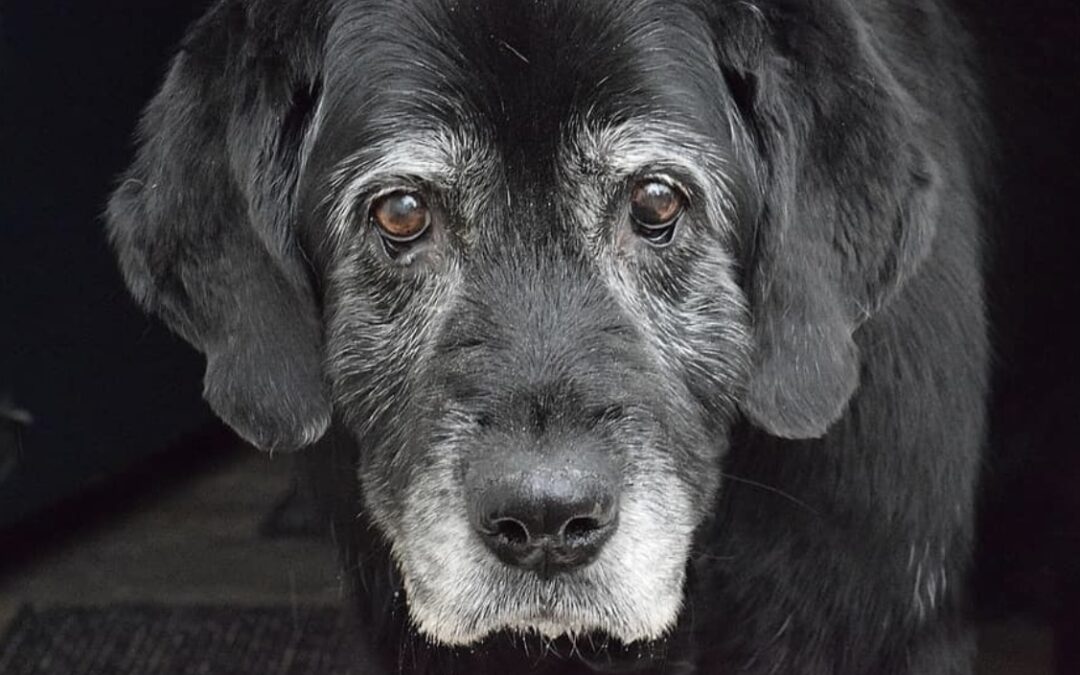
Our pets are considered part of our families. We will do anything and everything for them. Watching them become a senior and turn grey is a difficult part of pet ownership, but with improvements in veterinary care, pets are living longer than they have in previous years. As our furry family members become seniors, they require extra love, care, and attention.
Signs of Aging
The standard age range for senior pets varies based off of breed and size. Smaller breeds tend to have longer life expectancies, while larger breeds tend to have shorter life expectancies. Every pet will show different signs of aging. Many common signs include urinary/stool accidents, inappetence, loss of sight, hearing loss, weakness, senility, and arthritis to name a few. There is no magic potion that will prevent these things from happening, but there are things that we can do as pet owners to help slow down the signs of aging and make them more comfortable.
Things You Can Do For Your Senior Pet
Senior Wellness Visits
Semi annual wellness visits become more important the older a pet is. At every veterinary visit a thorough physical exam is performed. This allows us to find problems early on like masses, arthritis, and blindness. At this time we can also assess their weight and recommend the proper amount of calories to feed per day.
Annual blood work is recommended at each yearly vet visit. It is helpful to look into kidney values, liver values, white blood cell count, and red blood cell count to name a few. This may help find problems before your pet begins to show signs. It is important to do baseline testing when they are younger so we can compare the values later on in their life if a problem should arise.
Activity & Diet
Physical activity and a healthy diet are two important factors for both young and senior pets. Being overweight places additional stress on joints, which increases wear and tear. Overweight pets usually begin showing signs of arthritis sooner than lean pets. Weight gain in senior pets also increases their risk of health problems. That is why it is important to keep your pets physically active. Keeping their bodies active is important, but you also want to keep their minds active for their cognitive health. You can do this by providing enriching toys like puzzles, lick mats, snuffle mats, puzzle balls and much more.
As pets age they start to slow down, so you will need to adjust their activity accordingly. They may not be able to go on long walks anymore, but might still be able to go on a short walk instead. Or if they love to play ball they might not be able to chase after the ball as quickly or as long as they used to. With a decrease in activity they will not be burning as many calories. They are then more prone to weight gain, so you will need to adjust their calorie intake.
Older pets require more protein in their diet to maintain their muscle mass. Senior diet foods provide the proper amount of nutrients for them. As pets age they may also become picky eaters, so you will need to find a diet that works for them. There is a large variety of dry and wet senior dog foods to choose from. Diets with special supplements may also help decrease discomfort and increase joint mobility.
Mobility
As humans age we have a harder time moving around, we moan and groan when we get up, and our joints crack with each step. It is a similar feeling for our pets. There are some things that we can do as pet owners to improve their mobility. Keeping their nails short helps to prevent pressure being placed on their toes, which can be painful. Placing rugs on hard wood floors allows for better traction and prevents slips and falls. Adding ramps or steps to couches or beds prevents the need to jump on and off tall furniture. Elevating bowls makes it is easier on their neck and back, especially if they have arthritis. And orthopedic beds help them be more comfortable when they are relaxing.
Prevention
Caring for your senior pet starts before they are seniors. Each breed is predisposed to different medical problems. Dogs and cats with shorter snouts tend to have more respiratory problems. Sphinx cats are predisposed to skin issues. German Shepherd are predisposed to hip dysplasia. Boxers are at a higher risk of certain cancers. Dachshunds have back problems. And large breed dogs tend to have more arthritis and joint disease due to the stress of their weight on their joints. It is important to research a breed before you commit to getting a pet, so you know how to delay these issues.
Supplements like glucosamine, chondroitin, and omega-3 fatty acids can be added into their daily routine to help with joint care. Medicated baths can help with skin issues like allergies. For pets that have chronic ear infections it is recommended to clean ears on a weekly basis as maintenance. Non-steroidal anti-inflammatory medications can be given to pets with arthritis for pain relief. Yearly dental cleanings will help prevent dental disease, which is painful and is correlated to other health problems.
For more information on how we can help you and your senior pet be more comfortable please call the clinic at 815-282-2800.


